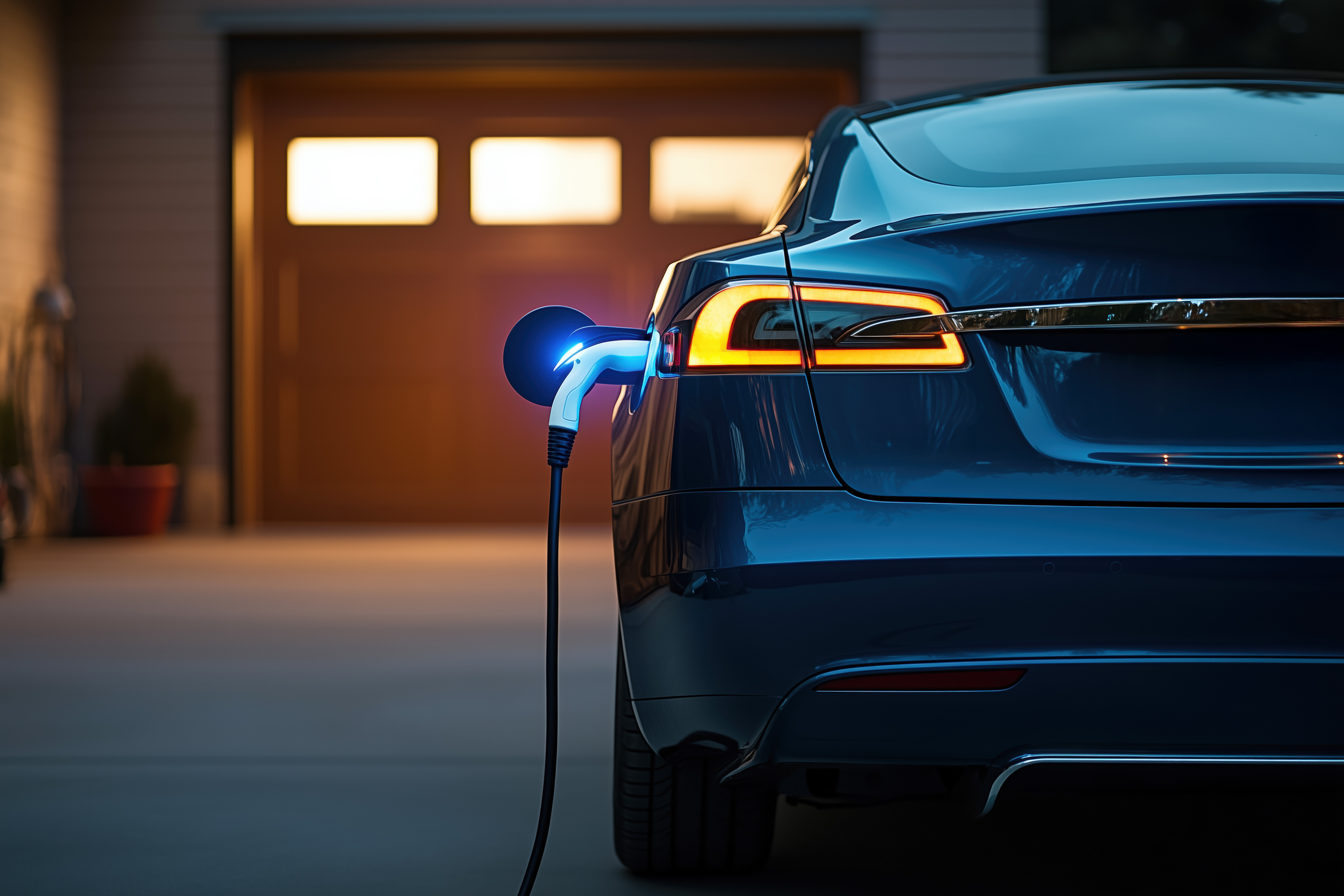Electric vehicles tend to have a higher purchase price than their gas-powered counterparts, but rebates, incentives, and EV tax credits can go a long way toward helping to defray that higher initial cost. The passage of the Inflation Reduction Act in 2022 expanded the opportunity for taxpayers to enjoy this federal EV tax credit.
Learn all about what this EV federal tax credit entails and which consumers and vehicles are eligible to help you determine if now is the right time to buy an electric vehicle.
Who Is Eligible for the Electric Vehicle Tax Credit?
So, how does the EV tax credit work? Starting January 1, 2024, the federal EV tax credit has been transformed into what essentially functions as a point-of-sale rebate. Consumers now have the option to transfer their new clean vehicle credit (up to $7,500) and their previously owned clean vehicle credit (up to $4,000) to a car dealer. This effectively lowers the vehicle’s purchase price, providing an upfront down payment on the clean vehicle at the point of sale, without the need to wait to claim the credit on tax returns.
{{CTA-EV-to-Solar}}
Learn more about the other clean energy Inflation Reduction Act tax credits.
Federal EV Tax Credit Eligibility Requirements
Like most federal tax credits, there are income requirements that taxpayers must meet to take advantage of the Clean Vehicle Credit. To qualify for a new car, your modified adjusted gross income (AGI) for the tax year in which you wish to claim the credit must not exceed the following:
- $300,000 for married couples filing jointly
- $225,000 for heads of household
- $150,000 for single and all other filers
You can also take a credit for used EVs. For used cars, these limits are $75,000 for an individual, $112,500 for a head of household, and $150,000 for a married couple filing jointly. The maximum sale price of a used car must be less than $25,000, and the credit is limited to $4,000 or 30% of the sale price, whichever is lower.
A specific car can only be eligible for the used EV tax credit once. Dealers are required to inform customers whether a used EV is eligible, and this eligibility can be checked via a government website using the VIN number. The used EV has to be for personal use, not a business vehicle. There is no depreciation allowed on cars that have received the used EV tax credit.
Does My Electric Vehicle Qualify for the Federal EV Tax Credit?
Only some electric vehicles are eligible for the Clean Vehicle Credit. To qualify, an EV must have a battery capacity of at least 7 kilowatt-hours (kWh) and a gross vehicle weight rating of 14,000 pounds or lower. EVs must also be made by a qualified manufacturer and “undergo final assembly in North America” (more on that below).
In addition, your vehicle’s manufacturer suggested retail price (MSRP) cannot exceed the following amounts:
- $80,000 for vans, SUVs, and pickup trucks
- $55,000 for other vehicles, such as sedans
Note: The MSRP is not necessarily what you paid for the EV, but simply the retail price suggested by the vehicle’s manufacturer.
You can review the IRS list of qualified manufacturers and vehicles to determine eligibility for your EV. To determine if your specific EV meets the final assembly in North America requirement of the credit, visit the Department of Energy’s page on Electric Vehicles with Final Assembly in North America. You can use the VIN Decoder tool on this page to determine if your vehicle qualifies.
When Should I Purchase an Electric Vehicle?
If you have a vehicle in mind and are ready to purchase, you may want to take the leap in 2024 to ensure your EV qualifies for the full tax credit to help defray the initial cost of buying an electric car.
However, if you’re not ready to buy an electric vehicle, you can still take advantage of the tax credit in the future. The clean vehicle tax credit is set to expire in 2032, and could potentially be extended or modified.
Why Is the Electric Vehicle Tax Credit Important?
Transportation, especially vehicles, plays a huge role in greenhouse gas emissions. Cars were the largest source of greenhouse gas emissions in the U.S. in 2022. By offering a federal EV rebate to taxpayers who purchase a new electric vehicle, the federal government wants to encourage consumers to invest in clean energy technology and help reduce our nation’s overall carbon footprint. Energy tax credits, incentives, and rebates all work together to make our nation and our world a little greener, as do education initiatives to help drivers learn the differences between gas vs. electric vehicles.
Key Takeaways
The Clean Vehicle Credit offers taxpayers up to $7,500 for a new electric vehicle and up to $4,000 for a used EV. Paired with the lower cost to charge an electric car, the result can be major savings over a gas-powered vehicle.
If you decide to invest in an electric vehicle, learn more about Gexa Energy’s EV plans. Designed specifically for EV drivers, these electricity solutions from Gexa Energy can help you make the most of your electric vehicle, offering attractive incentives for charging during non-peak hours. Contact us today for more information and to get started with finding the right plan for your car, home, and lifestyle.






































